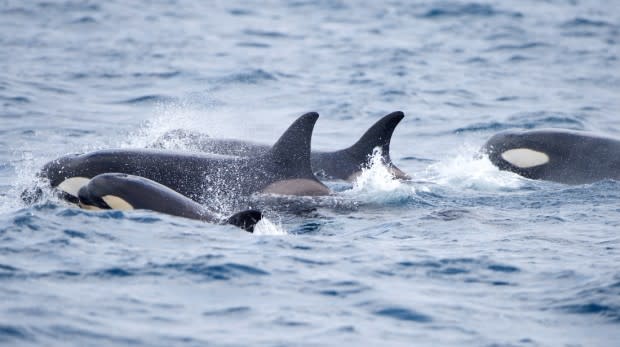Orca Attacks on Boats Are Escalating With a Concerning New Pattern of Behavior

Experts still don't know why killer whales are targeting boats off of Europe's Iberian coast. But after yet another incident in the Strait of Gibraltar late last month, in which a group of orcas nearly sank a yacht and then followed it to shore, it seems as though the behavior may be intensifying.
There have been 744 orca encounters reported since July 2020, and contact made in just over 500 incidents. In three instances, the animals managed to sink the ships completely. Until now, the pattern of behavior has involved the orcas attacking the rudder, and sometimes also ramming the side of the ship. After a boat is disabled, the animals typically seem to grow bored and swim away.
However, in this latest incident, the orcas continued attacking the boat well after the rudder was removed, preventing the crew from installing an emergency rudder. Even after the ship began taking on water and the coast guard was called to the rescue with a tug boat, the orcas continued to follow the disabled vessel until it reached shore.
April Boyes, one of four experienced sailors who was on board during the attack, recalled the ordeal on Instagram and in a blog post. Boyes writes that the crew was sailing from the Azores to Gibraltar, and encountered the pod of orcas when they reached the straight.
Although they turned off the engine and waited for the orcas to lose interest, she said that it didn't take long for them to start hitting the rudder, so much that "the force would spin the helm violently and you could feel the vibration through the deck."
View the original article to see embedded media.
But even though the terrifying ordeal continued for over an hour, Boyes notes that the crew was "professional and calm in the situation, given the circumstances."
"As an advocate for marine life and the protection of our oceans I don’t condone demonizing the Orcas," she explained on Instagram. "Yes, it is quite terrifying. However more research could be done into these encounters."
In another recent incident in the Strait of Gibraltar, British sailor Iain Hamilton recalled a pod of five orcas pushing his yacht "around like a rag doll" after ripping off the rudders.
"I noticed a fin then noticed a light bump and then a very big bump and looked round and there was a very large whale pushing along the back and trying to bite the rudder," Hamilton told BBC Radio 4, via The Independent. "To begin with there was one big whale and four smaller whales and they were just bumping it and bumping it and then one of them managed to take off one of the rudders."
"Then we lost the second rudder so we had no mechanism of steering the boat and the whales were in charge of the boat and they pushed us around like a rag doll," he added.
In her blog, Boyes suggests a theory that tuna fishing at the Spanish coastal town of Barbate could be interfering with the orcas' migration pattern, and that the animals may now associate vessels with taking their food supply.
Another popular theory among experts is that the learned behavior may have stemmed from one "traumatized" female orca, named "White Gladis," who had a negative encounter with a boat such as an accidental collision or illegal fishing entrapment.
According to Live Science, Spanish officials and researchers from the group Conservation, Information and Research on Cetaceans are planning to tag and monitor six orcas that have been involved in attacks with satellite trackers, and have succeeded in tagging one so far. But others worry this strategy could backfire by making the orcas even angrier.
"Many of us have reservations because we think that satellite tagging is not going to be of any use in relation to interactions, if not to aggravate the situation, because it is done by shooting and the killer whales will surely not find it very funny." said Alfredo López Fernandez, a biologist at the University of Aveiro in Portugal and representative for the Atlantic Orca Working Group.
In the meantime, López Fernandez advises sailors to be prepared when sailing in areas where orcas have been known to attack, and to avoid sailing at night or approaching the coast whenever possible.
